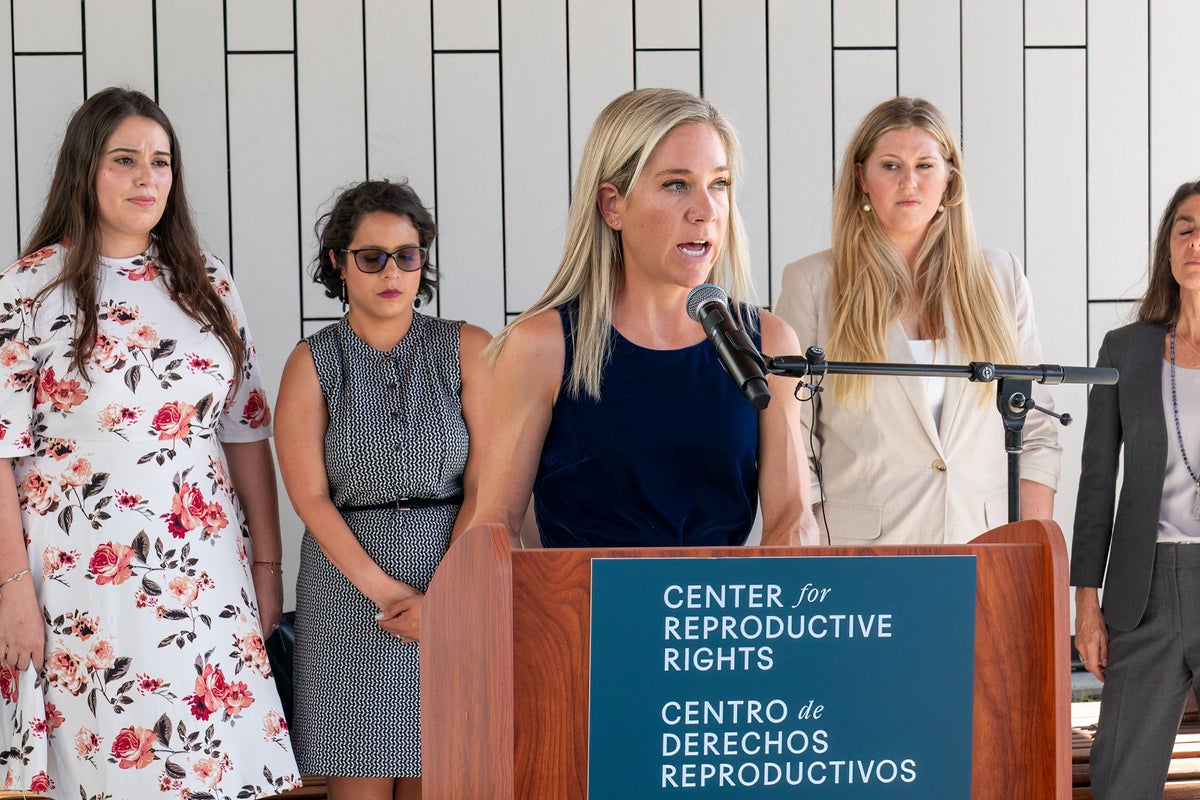
A Texas judge has sided with a group of women who were denied abortions in the state, putting their health and lives at risk during dangerous complications.
The judge has temporarily blocked the state’s ban on abortions during medically complicated pregnancies in response to a lawsuit from 13 women seeking urgent clarity in the state’s anti-abortion law.
An injunction from District Judge Jessica Mangrum on 4 August follows harrowing courtroom testimony from five plaintiffs during a two-day hearing in which they were cross-examined by attorneys for the state, which has sought to toss the case out altogether. The judge has also rejected that request.
“For the first time in a long time, I cried for joy when I heard the news,” lead plaintiff Amanda Zurawski said in a statement from the Center for Reproductive Rights, which is representing the women in the case.
“This is exactly why we did this. This is why we put ourselves through the pain and the trauma over and over again to share our experiences and the harms caused by these awful laws,” she added. “I have a sense of relief, a sense of hope, and a weight has been lifted. Now people don’t have to be pregnant and scared in Texas anymore. We’re back to relying on doctors and not politicians to help us make the best medical decisions for our bodies and our lives.”
Texas outlaws most abortions except for conditions that qualify as “medical emergencies,” sparking widespread confusion among providers and hospitals fearing legal blowback or severe criminal penalties. Healthcare providers in the state found in violation of those laws could lose their medical license, face tens of thousands of dollars in fines, or prison.
The lawsuit asked the court to help provide clarity around what circumstances qualify as exceptions, allowing doctors to use their own medical judgment without fear of prosecution.
In her ruling, Judge Jessica Mangrum wrote that doctors cannot be prosecuted for using their own “good faith judgment” in providing such care, and that “physical medical conditions include, at a minimum: a physical medical condition or complication of pregnancy that poses a risk of infection, or otherwise makes continuing a pregnancy unsafe for the pregnant person; a physical medical condition that is exacerbated by pregnancy, cannot be effectively treated during pregnancy, or requires recurrent invasive intervention; and/or a fetal condition where the fetus is unlikely to survive the pregnancy and sustain life after birth.”
The injunction will be temporarily blocked if and when the state appeals the decision.
“This makes me hopeful that we can continue to provide competent rational care,” said Dr Damla Karsan, who is among two obstetrician-gynecologists who joined 13 other Texas women in the case.
“It’s exactly what we needed,” she added. “The court has guaranteed that we can once again provide the best care without fear of criminal or professional retribution. We can once again rely on our knowledge and training especially in challenging situations where abortions are necessary.”
More than a dozen states, largely across the US South, have effectively outlawed abortions in the aftermath of the US Supreme Court decision to revoke a constitutional right to abortion care. The decision to overturn Roe v Wade and ensuing anti-abortion laws have upended access to care for millions of Americans who are forced to travel outside their states where abortion is protected, compounding the already-fractured and patchwork system for abortion care across the country.
Anti-abortion laws in Texas have “paralyzed” health providers from being able to properly counsel and advise their patients, Dr Austin Dennard testified during the Texas abortion lawsuit hearing.
“We’re truly doing the best that we can with the situation that has been given to us,” she said.







